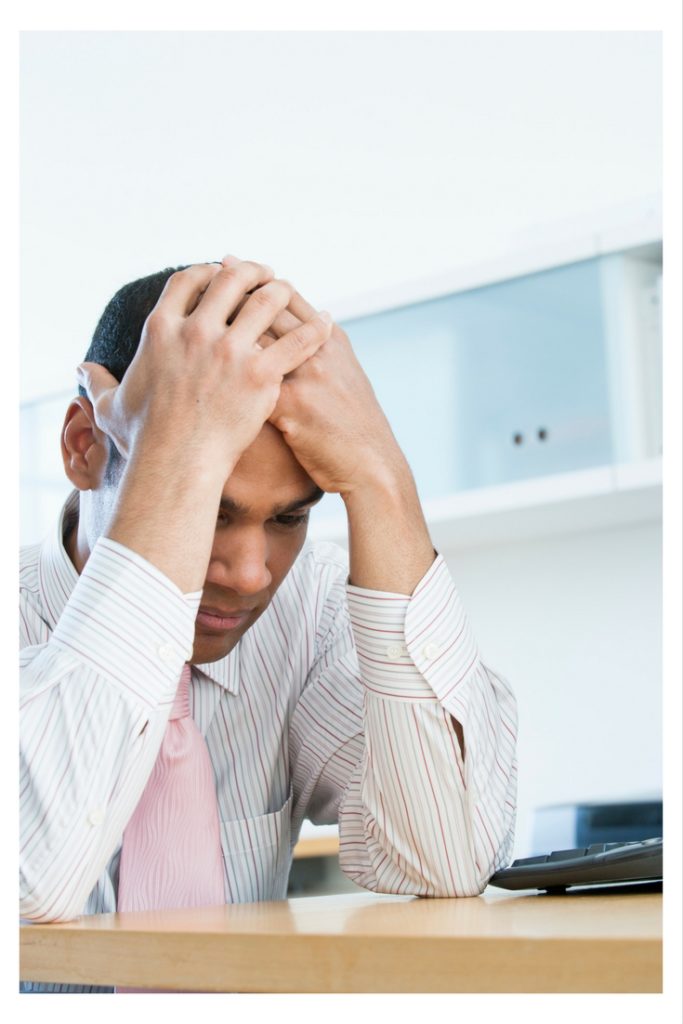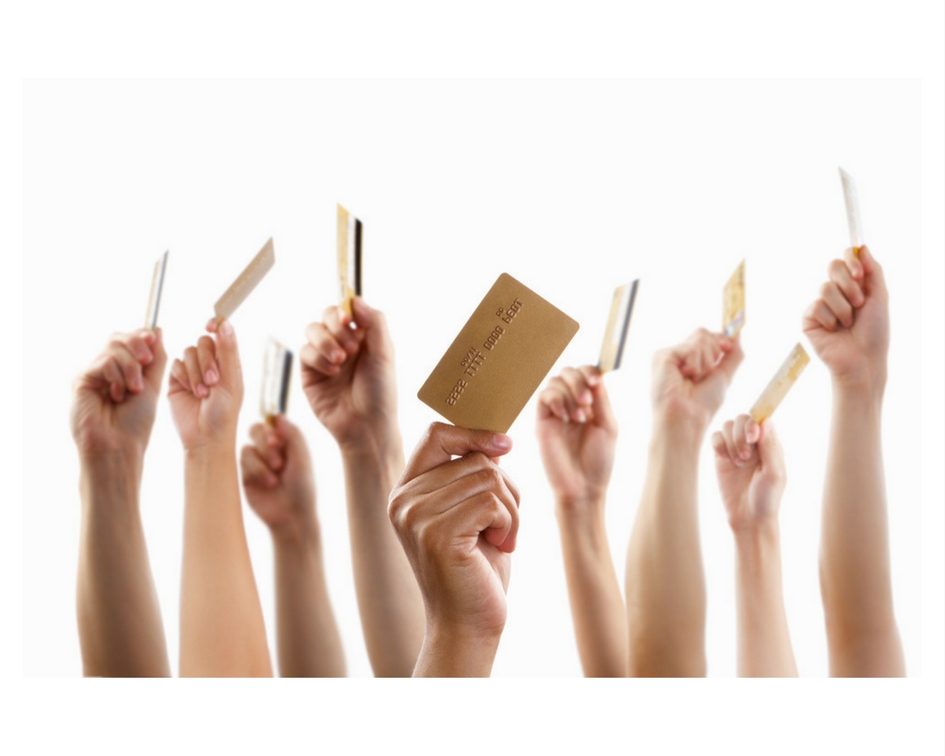Today I watched an episode of a popular television series that left me baffled. It made me wonder how many people don’t realize how serious poor credit card habits are and what those habits can lead to.
The woman, whom this episode was about, got herself into deep financial trouble. She was in so much debt that she started to get cash advances on one credit card just to pay another. As she maxed each credit card, she began to take out payday loans to cover her bills.
It doesn’t stop there. After making a payment on one payday loan, she opened another with a different company. When that was no longer an option, she started to bounces check. In fact, she bounced 16 checks in one month!
As you can imagine, I cringed at the thought of her maxing her credit cards. I cringed even more as I listened to how she got herself into deeper trouble in her attempt to keep up. It inspired me to write in an effort to help people understand the good, the bad, and the potential disaster.
The Good: Credit cards are great for building credit
Credit cards are convenient and a great way to build credit and boost credit scores. As explained in Four Ways to Build Credit, credit cards are one of the best ways to prove creditworthiness. To maintain good credit, one must pay bills on time and refrain from opening too many credit cards (along with other credit accounts) in a short period of time.
Credit cards are revolving accounts that contribute to your mix of credit. In Understanding Credit for Beginners, I explain the difference between revolving and installment accounts and how you need both to prove credit worthiness. To optimize your score, you need to maintain a variety of credit accounts. Using credit cards properly can help you do so.
How to take advantage of the GOOD
Some people, like myself, use credit cards for normal items in their budget such as gasoline, utility bills, and cell phone bills. After charging monthly expenses, I leave a small balance on one card to show utilization. When I want to purchase something that is not in my budget, I use my extra cash to prevent overspending. To avoid interest, I pay the full amount charged on all cards before the due date.
By doing this, I take advantage of credit card rewards. I also stay within my budget since I never pay interest. For a better understanding of how to show utilization and avoid interest, click here. By sticking to a budget and only using credit cards for items that I normally pay, I haven’t paid interest on any of my credit cards in years.
It is not difficult to establish good history with credit cards. These revolving accounts will testify to your stability and good payment habits. This is the GOOD thing about credit cards. It is up to you to practice discipline to take advantage of the benefits.

The Bad: It’s a Credit Card not a Gift Card!
I can recall the excitement I felt whenever I got approved for a credit card. Someone in our Facebook group made the point that credit cards are not gift cards, and I wholeheartedly agree. Although it felt good to be approved, I quickly reminded myself that unlike a gift card, any charges I made had to be paid back.
If you lack financial discipline, the excitement you feel from being approved for a credit card can quickly turn into a stressful situation and start to look like a bad idea. In addition to the emotional toll, poor spending habits with credit cards can ruin your credit and drastically lower your credit score. Purchasing items on credit, even if they’re small, without having the cash to pay it back will catch up to you quickly.
How to avoid the BAD
One of the most essential tools to help you avoid trouble with credit cards is to create a personal budget. If you don’t already have one, see 3 Personal Budget Methods to help you get started. A budget will keep you from overspending. More importantly, it will help you to create an emergency fund. This way when an emergency happens (and it will happen), you can refrain charging it to your credit card.
Show utilization below 30%. The most responsible borrowers shows utilization below 10% for an optimal score. Don’t carry balances. This is not the same as showing utilization since carrying a balance from month to month costs you interest.
Never purchase what you can’t afford to pay back. Stick to normal items in your budget. Pay cash for items that are not in your budget. Be careful, and don’t blow your budget justifying purchases.
Don’t open too many credit cards in a short period of time. It makes you look desperate for credit due to financial problems. It also lowers your credit score.
Read the terms and avoid credit cards that don’t have a grace period on interest. You don’t need to pay interest to prove you are creditworthy.
Remember that all purchases made with a credit card have to be paid back. If you have poor spending habits, change them now before it turns into a disaster.

The Disaster: Financial Ruin
I wish I could say that most people practice good spending habits with credit cards. Unfortunately, that is not the case. In fact, approximately 38% of all American households have credit card debt. Be careful. It is common for bad habits to lead to a disaster and financial ruin.
Credit card habits that can lead to disaster
Cash Advances
A cash advance on a credit card will cause your overall debt to increase. Avoid doing this at all costs. The fees and interest charged from a cash advance can be equivalent to those of a payday loan. You will have a harder time paying off your bills. So keep in mind, a cash advance does more harm than good.
Seriously Delinquent
Skipping payments and becoming seriously delinquent can result in late fees, a penalty APR, charge offs, and getting sued. Late fees and a penalty APR may be imposed causing more debt. If you go too long without paying, it can lead to a charge off or worse, getting sued. If you find that you are purposely ignoring your credit card debt, STOP. Take a look, set up a budget, and create a plan to pay off your debt. Get serious! Undebt.it can help you create a debt payoff plan.
Paying For Everything With Your Credit Card
Paying for everything with credit cards without a clear plan to pay it back can create a vicious cycle and lead to financial ruin. Some people purposely use credit card for rewards and points and do it well. However, these people only spend what they can afford to pay back. Chasing rewards is not for someone who is just starting out. You need a solid understanding of how credit cards work. Leave this to those who are both knowledgeable and disciplined.
Don’t justify charges. Try using your credit cards as little as possible. If you don’t trust yourself to stick to your budget, just use it for gasoline. If that doesn’t work either, cut it up.
Multiple Balance Transfers
Multiple balance transfers are a sign that you are not properly managing your credit cards. Sometimes it financially makes sense to transfer a balance. The hard truth is if you’re doing this often, you are still practicing poor spending habits. Create a plan to pay them off.
Be honest with yourself
Credit card debt is not unusual, but ignoring it won’t help you. If you’re going to use them, use them properly. If you’re currently struggling, call your credit card issuers to work out a plan. Another way to help yourself is to create a budget to stop the bleeding and avoid financial ruin.


Glad you liked it!